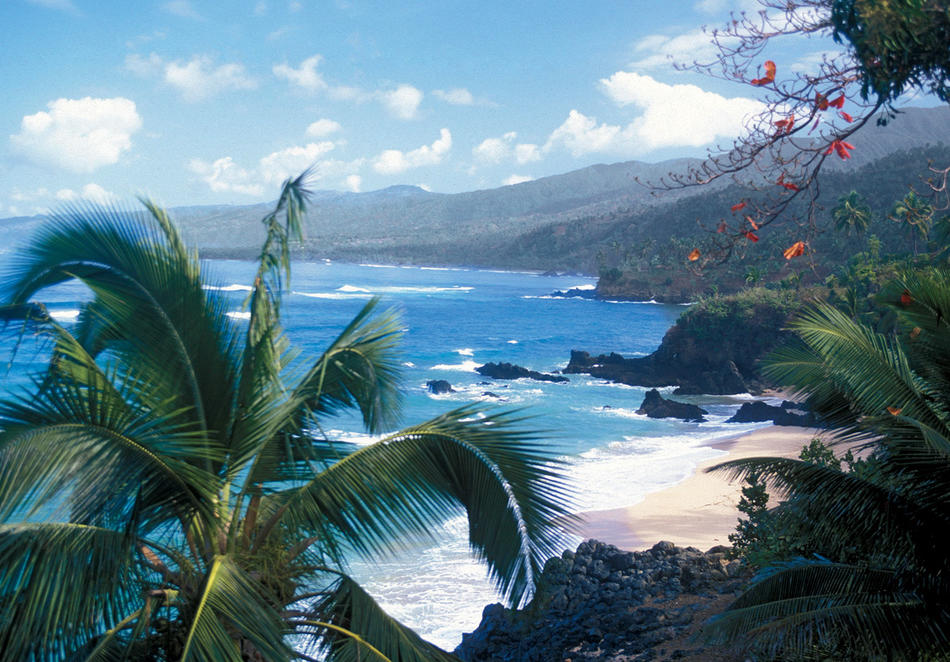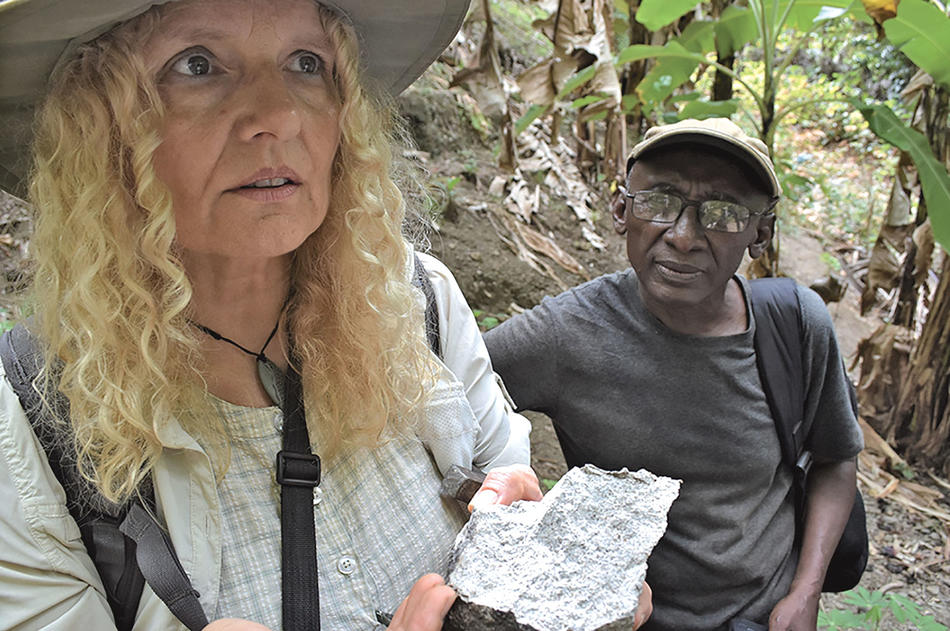A team of geologists led by Cornelia Class of Columbia’s Lamont-Doherty Earth Observatory believe they are close to solving a mystery that has puzzled scientists for more than a century: why a small tropical island in the Indian Ocean contains a mountain of crystalline rock that could never have formed there naturally.
The island, called Anjouan, was born some four million years ago when volcanic eruptions pushed enormous amounts of lava above the waves. As a result, Anjouan is composed entirely of black igneous rock — except for a curious mass of glittery quartzite. “To say that the quartzite doesn’t belong here would be a tremendous understatement,” says Class, who led an expedition to Anjouan to collect samples and survey the landscape.
According to Class, quartzite forms in very particular circumstances, typically when pure quartz sand grains accumulate in river deltas, get buried, and fuse together with other sediments. Quartzite could not have formed on Anjouan because the island’s volcanic rock contains no quartz grains; even if it did, Anjouan has no rivers large enough to forge such composite stone. This has led Class to hypothesize that the rock formed either on mainland Africa, some two hundred miles to the west, or Madagascar, two hundred miles to the east, and then hitched a ride on a shifting piece of the earth’s crust that dumped it on the sea floor. She suspects that the mass of stone, which appears to be at least twice the size of the Empire State Building, was coughed up by the same volcanic eruptions that made the island.
“It’s totally crazy,” says Class. “The thing would have had to be propelled nearly two miles upward.”
Class and her colleagues, who include Columbia geochemist Steven Goldstein ’76CC, ’86GSAS, are now analyzing samples of the quartzite to determine its age. If they can match it to quartzite in Africa or another location, they will have compelling evidence of the stone’s origin — and fresh insight into the power of underwater volcanoes.
“Our current models of volcanism may have to be updated,” Class says.




